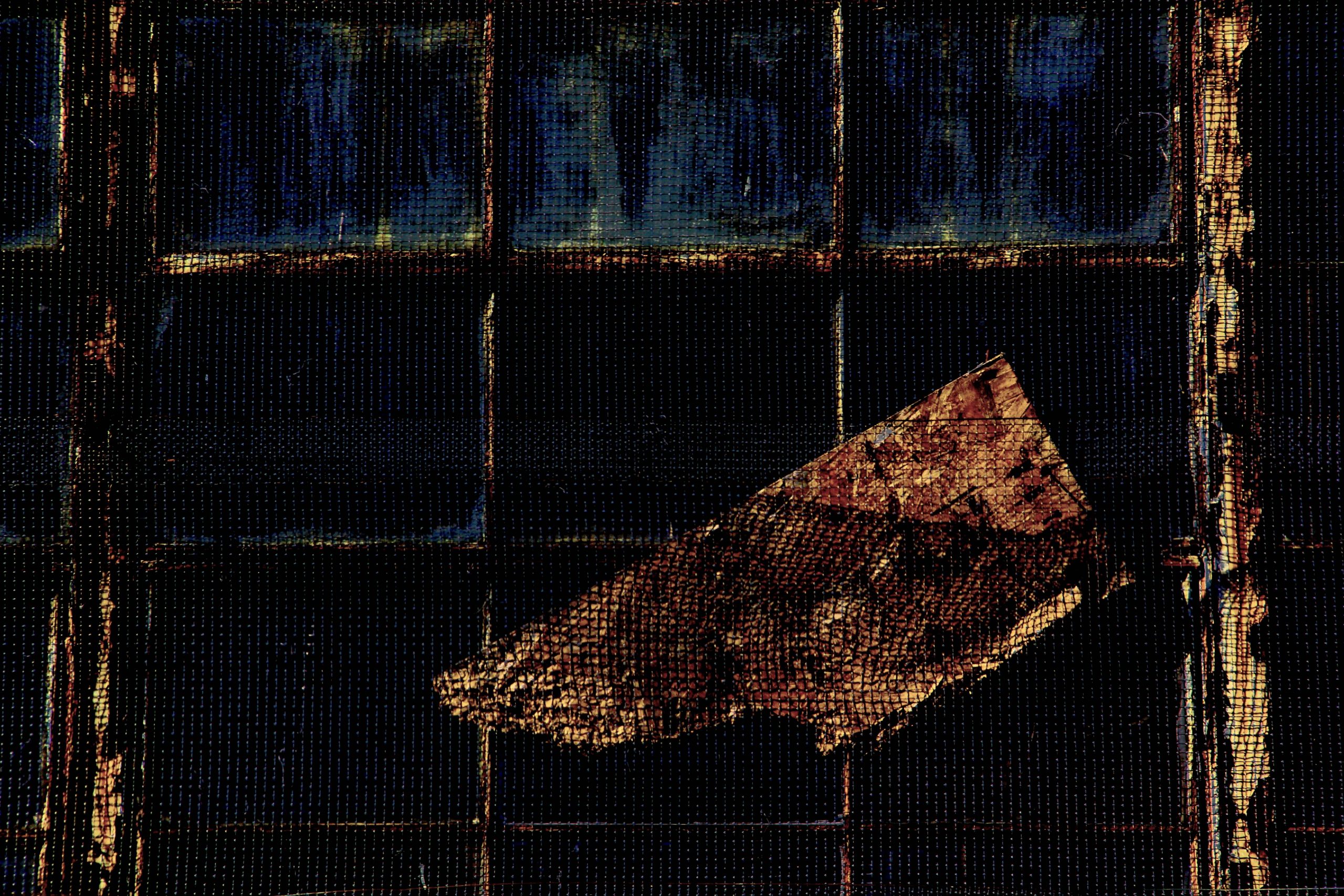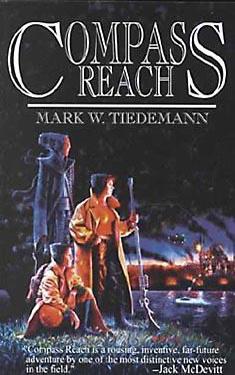I’ve been participating in a Witnessing Whiteness workshop. The program is through the YWCA and Left Bank Books has been the main supplier of the book for several years now. The Y program is ongoing and there are other reading groups using it. The book, by Shelly Tochluk, has a relatively narrow premise that expands over time to encompass the national (global?) debate over racism. Her jumping-off point is that a serious problem exists in that we have no clear definition of White Culture. As the dominant “race” in the West, at least, we collectively see no reason to self-identify as a specific group with common characteristics which set us apart from other groups, i.e African Americans, Asians, Hispanic/LatinX, etc. That we recognize such other groups as distinct cultures apart from our own, but we don’t possess a framework of our own culture that can let us know when we’re being White. As the euphemism goes, our culture “goes without saying.”
Admittedly, much of this felt off-base. The concentration on skin color, I felt, underappreciated all the other factors that go into questions of inequality. Everyone, to greater or lesser degrees, is pigeonholed within our society. Aware or not, most of us do not enjoy what we seem to mean by freedom, which is to say, a geographically, economically, politically, and socially open, porous commonweal. Most of us do not move freely between groups, communities, or classes. Many of us enjoy the semblance of such freedom—we can go anywhere (pretty much) we want for vacation or to visit friends, we can access festivals, shopping venues, theaters, we can (presumably) vote in any election for any candidate, and we believe we can change our economic situation more or less at will. (I acknowledge this is a presumption not always supported by ability, which is dependent on many things not equally distributed.) But for the most part, we remain in our local communities, we cannot be a real part of any community we want (we can only be tourists), and the economic mobility we tell ourselves we have does not exist if we look at larger demographic data. There seems to be just enough socioeconomic mobility to justify assumptions that anyone, from anywhere, can become wealthy. The reality is far more uncertain, with a substantial number of people remaining within class brackets and experiencing only small shifts.
When one factors in race (and poverty) the intractability appears to increase.
The difference is enough that it is impossible to accept the oft-stated popular belief that racism plays only a minor role in how our society functions.
The goal of Witnessing Whiteness is to define, as concretely as possible, the culture in which it plays out—namely, White Culture.
This is hard. At least, I’ve found it so, because first one must define what comprises Culture. After several weeks of this, I’ve come to the conclusion that Americans (mainly white Americans, but to some extent probably everyone) are culture-averse.
Culture has anthropological implications. It is, in this formulation, a box that contains the components of a community identity. Or, for the purposes of this argument, a set of constraints. In short, it is ostensibly everything Americans claim to reject.
It is very difficult to define something while simultaneously rejecting the tools for the task. When asked, as Shelly Tochluk is asking, for a definition and recognition of White Culture, we tend to avoid the methods, feeling that to use them—and then accept the answers—would limit us in ways we have already, sans proof, decided are unAmerican. We refuse to allow a forensic evaluation of what makes us who we are. Partly because we might not like the answers. Partly because we feel there’s something special about us that transcends categorization. And partly because we’re suspicious of anything that smacks of direction, control, and demythologizing our self-image.
America—specifically the United States, but I suspect a bit of this adheres to the entire hemisphere—is built on the ideal of the Self Made Man. The Individual. The Yeoman Farmer, the Frontiersman, the Mountain Man, we all like to see ourselves as the captains of our own destiny. From time to time we’ve been explicit about it. Manifest Destiny, the White Man’s Burden (although that spans the Atlantic). In some ways it’s an empowering idea, but it has been used to underpin suppressions of any movement to form useful communities for the redress of grievances. Union busting is born of a corrupted use of the ideal. (Of course, one could legitimately ask if the ideal is not already a corruption, but maybe for a later time.) We are the land of the Individual. Individual liberties, individual choice, individual dreams.
(Unless you’re a woman or Black, Asian, Latino, Hispanic, etc etc etc)
This ideal has been tragically wedded to another idea that turns it into a more destructive paradigm: the sacredness of ownership.
Two things informed the American Revolution that went on to both benefit and damage us. The Enlightenment and the migration of disenfranchised groups throughout the colonial period.
The Enlightenment informed the creation of the political template—the Constitution, the Bill of Rights, and the country-wide dialogue around them. The immigrants brought a desire to be free to direct their own lives, which became the basis of our concept of ownership. One of the transformational aspects of the early United States, predating it even, was the idea that anyone could own, without fear of arbitrary loss, property and by extension their lives. (I take as understood that none of these things was universal, but the ideas became geared into our national myths.) While the founders of the colonies were mostly moneyed, aristocratic, or both, the people they opened the country up to were decidedly neither. As the European presence here evolved, concessions, inducements, promises had to be made to get them to leave their homelands and come to a place where they might easily die in short order. The one that worked best was the promise of their own land. Ownership.
This evolved and you can track it obliquely by the changing requirements placed on indentured servants. Witnessing Whiteness has a chapter on this history and has its own interpretation. I do not dispute that interpretation, that as time passed a distinction was established between white servants and both indigenous slaves and African slaves, a process that developed along with a growing awareness of race differences in relation to rights and property. Add to this the inducements for the separate but related practice of convincing people to uproot and settle in the so-called New World.
As to the consequences of the Enlightenment, that may seem a bit esoteric but it had very tangible results. A significant aspect of the Enlightenment was a rejection on the part of the Philosophes of the hegemony of the Past. The Philosophes were convinced that the Past was a tremendous weight and set of chains on the human spirit. Europe, at least, had been looking backward for centuries. It was time to turn the collective gaze to the future, but to do that civilization had be set free of a dead, useless past. In 1783, the political flower of that conviction was a government without a king. Without an aristocracy, either. Without, presumably, heritable privilege. It was a profound break with the Past. With the further innovation that government should be not only answerable to the People but by some mechanism come from the People, you have the basic components of the revolution.*
The unfolding reality of this, however, was an eventual rejection of tradition, a great turning away from the customs that bound people to a culture they had fled.
A people without a past will replace it with something.
What we did here depends on where you look, but in general the West became our past. The West in many forms, but essentially an ever-receding goal, a constant horizon, there to be found, conquered, and remade.
How this factored in to the parallel establishment of White Culture (here in the United States) is complex, but not hard to see in its effect. The Conquest of the West was transformed into epic theater and all the major players were White Men in conflict with non-white people. The success of the conquest was sold as justification for the kind of self-worth normally provided by communal affiliations, the kind which had been rejected when immigrants arrived here, and the supporting institutions of that conquest then embedded in the national psyché as necessary to the triumph of the revolutionary spirit in concert with a growing conviction that we are the beneficiaries of Divine Providence.
And what did that look like? A white man standing his ground, clearing land, making his way, with wife and children at hand to support him. (Before we have the tools to interpret the world around us in terms of systems, we use images, and some of those images persist well beyond their utility and distort our later ability to understand.)
What about all the others? The indigenous people? African slaves? Hispanics? Well, per the myth, none of them have legitimate claim to what has been wrested from them. The entire foundation of Manifest Destiny, which dominated a good part of the 19th Century and lingered on in various justifications was United States policy to this very day. was a simple notion that we owned all this, we just had to get the squatters out of the way.
If you are trying to find a basis on which to define White Culture, you can start with this. An Enlightenment concept which has become entangled with colonialism and capitalism, personified by the Self-Made Man. Which is a false ambition because it cannot be achieved. No one is self made. It’s a fallacious formulation that takes an ideal result and then goes back through causes to determine how one got to that result. But the forensics are biased, rejecting anything that detracts from achievement done in isolation, unsupported and unhelped, entirely boot-strapped from nothing to success. We rejectthe contradictions under layers of tradition, custom, and system-rigging all redefined and edited out of the final result. Little Johnny’s community makes it possiblefor his parents to guide and direct him through every obstacle on the path to a successful future and when he gets there we tell him he did all of it himself. What was intended as a philosophy to liberate the individual from restrictions of systems and customs that defined and delimited what he or she could be irrespective of any personal dreams, desires, or ambitions mutated into a philosophy that built systems designed to produce that liberated man but then rejected the idea that he could not be that ideal outside of those systems. Rejected the idea that we are each of us only meaningful in relation to the community that nurtures us.
This has become an aspect of what I have begun to call Pathological Ownership—the practice of trying to exercise possession of everything that is determined to be important to us. Not important as inspiration but important as a kind of material object that can be owned.
How does this relate to racism? Well. The privileging of skin color as something owned, not as something one simply has. And as an object of possession it becomes part and parcel of all other defining possessions. A cache, if you will, to easily identify the meaning of all those other objects—like rights. Because an aspect of ownership is to exercise exclusiveness, to dictate distribution, and to hold a form of title. In this sense, ownership is implicit—ownership of space, the objects in it, and the assumption that everything is potentially there for one’s personal use. The stronger the sense of ownership, the wider the sphere of ownable objects. Until it includes people.
This is nothing new. Ownership of people is as old as civilization. The difference is that in times past this was as aspect of power not race. And those who had no power did not see themselves as entitled to it. The distorted apprehensions in which we live create an idea that the power involved has nothing to do with the entitlement assumed. That because we share a single trait—white skin—that we all have a de facto right to behave as if we have the power.
Naturally, this runs headlong into realities that would suggest otherwise, but it has become useful for those with the power to cultivate that attitude as universally as possible within the self-designated group—white people. All the myths and euphemisms and assumptions of our “culture” feed into a stew of presumption that ignores class (even as class is fully in play in other ways) and tells who rightfully may own.
Those who are not of that group are regarded, if not outright labeled, as thieves.
And you can tell them by the way they look.
Two observations before I close: one, it must be kept in mind that for something like this to maintain, it is not necessary that all or even most of a population subscribe to it. Most of us accept as given many other beliefs and philosophies which mitigate things like this. We are not homogeneous, ideologically or otherwise. But while it is likely true that most of us do not act this way, much less believe it necessarily, enough of our culture does to effect the rest. Without acknowledging it, the rest of us have no traction to suppress it, and the fact is we move through a world shaped by this kind of arrogance. We accept it without even trying to identify it because, for most of us, it seems to work. The difficulty with dialogues like this is the fact that so many people are relatively unaffected, at least in a material way.+ Actual slaveowners in the 19th Century were decidedly a minority, but their culture convinced the majority of their fellow countrymen to defend the practice, or at least the institutions that depended on slavery.
The other thing is that what I’m suggesting here is not intended as any kind of antidote to racism. I’m addressing here the specific aim of Witnessing Whiteness, at least as I understand it, which is to define White Culture. The idea is that we cannot address the conflicts associated with racism until we can know the culture that profits by it.++ It is annoyingly difficult to describe the contours and lineaments of one’s own culture—much like asking a fish to define wetness. I’m suggesting here that this might be a useful place to start. A major aspect of American Culture is all about ownership. Ownership as a practice is not exclusive to us, but I believe the conditions of our founding and the history of our development have engineered a unique “take” on the idea, which has become, as I suggest, pathological. The ramifications are troublesome. If nothing else, it has rendered our concepts of freedom….ironic.
____________________________________________________________________________________________
*That was the American Revolution, not the war against England. It is all too common to see the so-called Revolutionary War as the important thing, but it was not the Revolution. The Revolution was the establishment of a new political and ideological paradigm in the form of the Constitution.
+ I believe that is beginning to change. The aspect of Pathological Ownership we are all coming into conflict with is the growing wealth gap and now the economic shocks of a system that is trying to reject safety nets and the changes in economic structures needed to deal with the transforming nature of work and the looming problems of the environment. More and more of us are now feeling the consequences of this situation.
++And we are so very much about profit, so much so that we cannot find our way to accepting in any practical way the reality that some things cannot, must not, be done for profit. For some people, such a suggestion is gibberish. The assault on rights is an example of this. If we can’t make money on it, what good is it? And if it stands in the way of making money, it should be eliminated.











